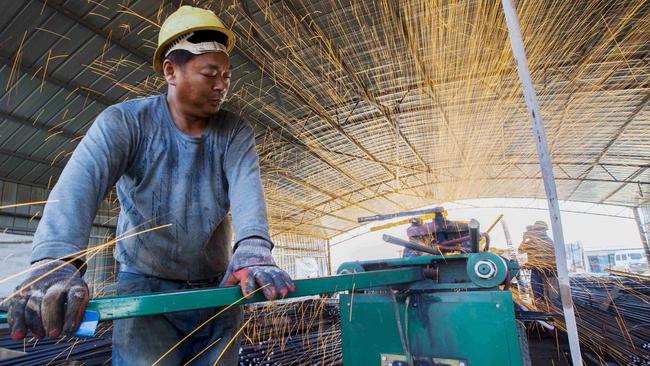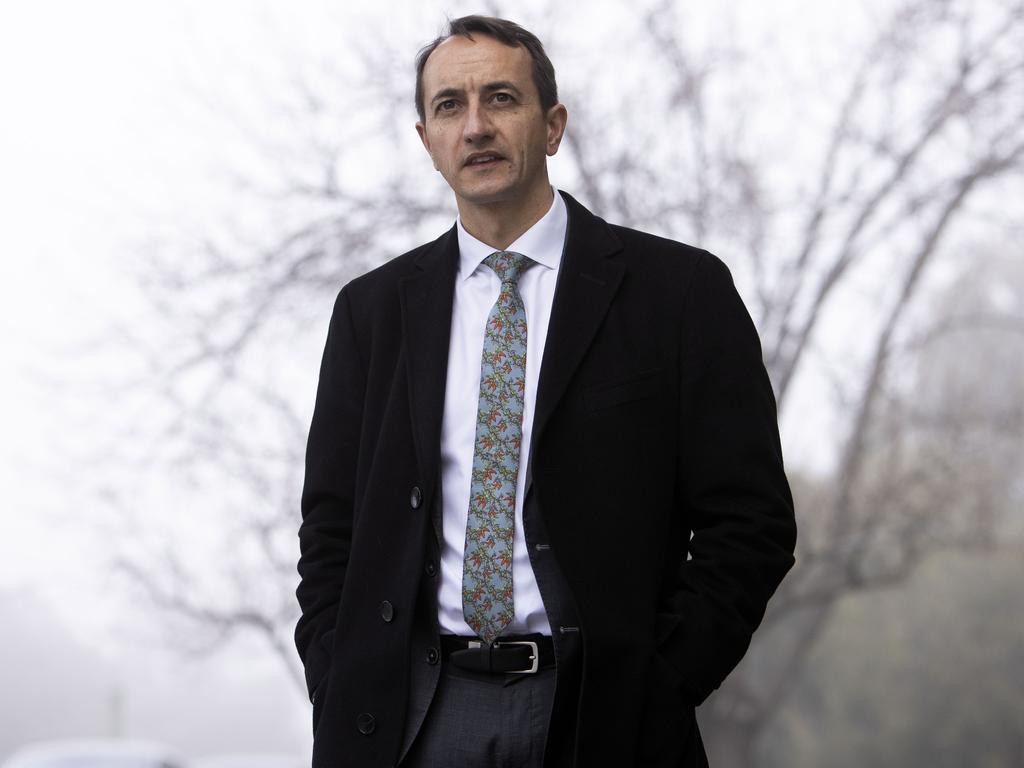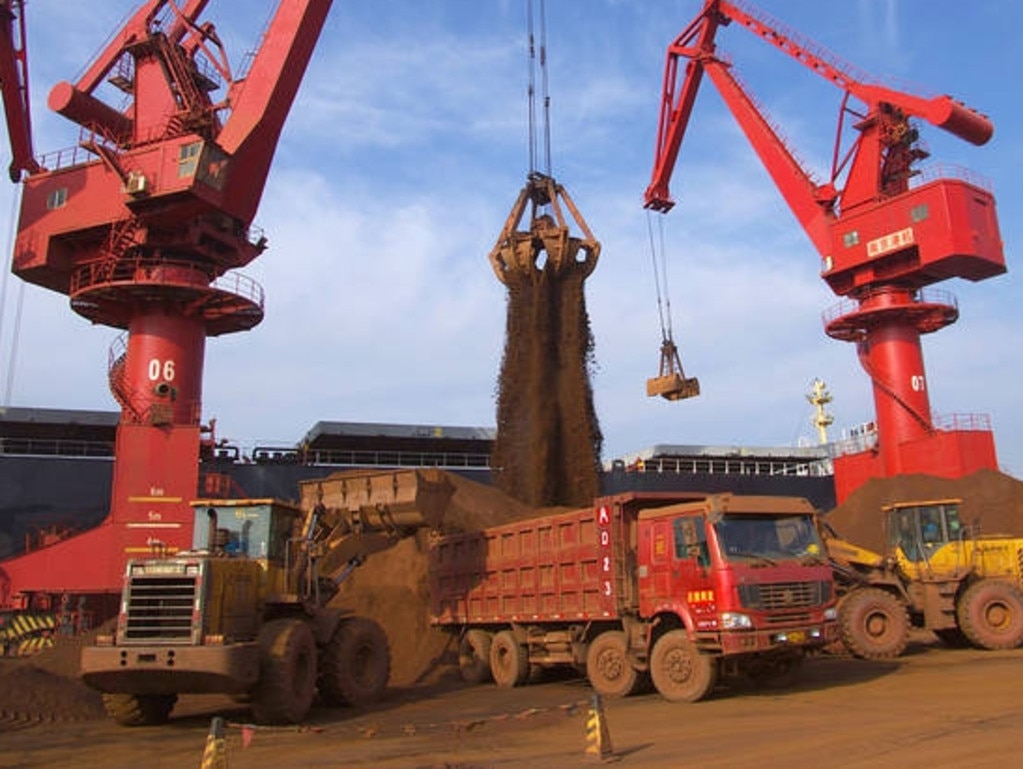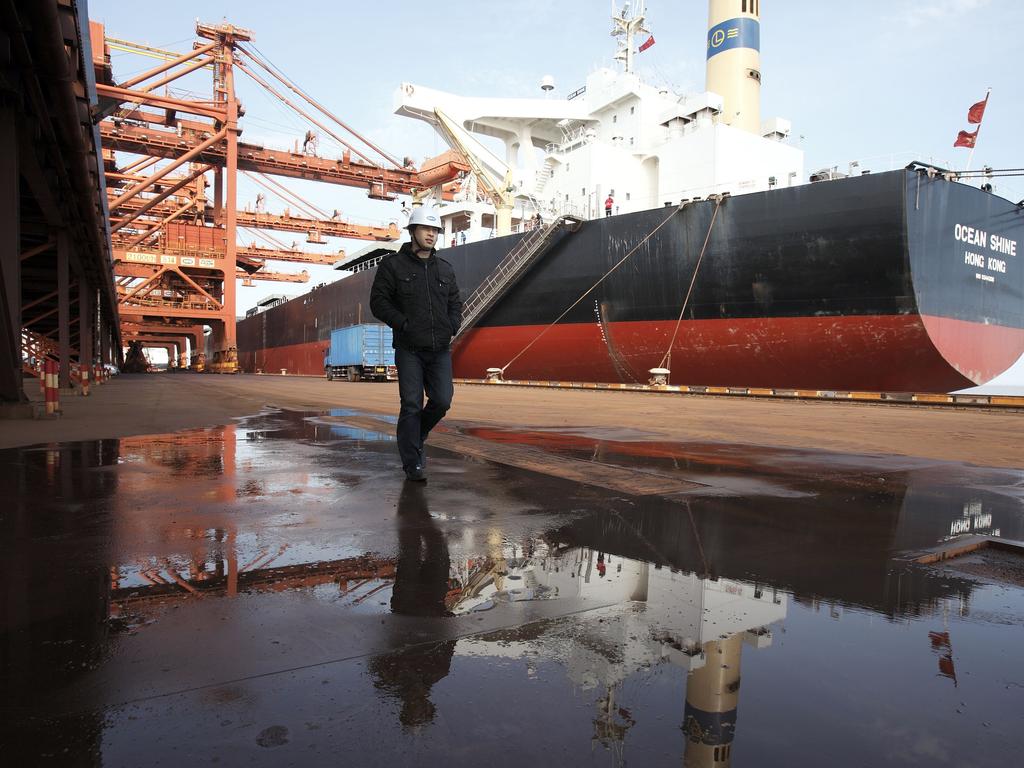China delivers big miners a ‘please explain’ on ore prices
Warning shots to the mining giants follows a move by Beijing that has all-but-formalised the blacklisting of Australian coal, devastating the $14bn trade.

Australia’s largest mining companies — BHP and Rio Tinto — have been asked to explain to Chinese steel manufacturers why their iron ore prices are so high as the surging $85bn export undermines Beijing’s eight-month trade retaliation campaign against the Morrison government.
Warning shots to the two mining giants about a regulatory crackdown follows a move by Beijing that has all-but-formalised the blacklisting of Australian coal to the world’s biggest energy consumer, devastating the $14bn trade.
The latest coal trade strike takes the total amount of Australian annual exports blocked by Chinese port authorities, crippled by tariffs or banned by Customs to more than $20bn following hits to wine, wood, barley, meat and lobster.
A surging iron ore price — which in recent days has hit its highest levels in nine years — has frustrated Beijing’s campaign, pouring billions into the Australian government in tax revenue and swelling miners’ earnings while undermining the profitability of China’s steel industry.
The China Iron and Steel Association said the “iron ore pricing mechanism had failed” and its members were calling on Chinese regulators at the State Administration of Market Supervision and the China Securities Regulatory Commission to investigate iron ore prices and “severely crack down on possible violations of laws and regulations”. That threat saw iron ore tumble by nearly 5 per cent on Monday after prices of the commodity doubled since February, but experts said China’s claims of market failure were ill directed.
“There’s actually a rationale behind it — it’s because the market is caught short,” CBA resources analyst Vivek Dhar said.
Rio Tinto is expected to meet with Chinese officials this week, industry sources told The Australian, after its biggest rival BHP was quizzed by China’s peak steel industry body last Thursday.
“BHP is in constant contact with our iron ore customers and doing all it can in this challenging year to maximise iron ore production,” a BHP spokeswoman told The Australian.
Rio declined to comment.
Australia’s third biggest producer Fortescue — whose billionaire chairman Andrew Forrest has good relations with Beijing — has not been summoned for a meeting, although one is expected in the new year.
Fortescue chief executive Elizabeth Gaines said the company had a strong and positive relationship with the China Iron and Steel Association, which includes “regular meetings and ongoing communication on matters of mutual interest”.
“As a low cost supplier of seaborne iron ore to China, our well-established marketing strategy is centred on the long-term needs of our customers,” she said.
Trade Minister Simon Birmingham on Monday called for Chinese authorities to immediately rule out state media reports of “discriminatory practices against Australian coal”.
“We reiterate that all terms of our free-trade agreement and world trade obligations between Australia and China should be upheld and respected,” he said.
The National Development and Reform Commission met with major Chinese power companies on Saturday to address a surge in coal prices in the world’s second-biggest economy.
State-controlled media singled out the Australian coal industry after the meeting with Beijing’s top economic agency. “China’s top economic planner on Saturday gave approval to power plants to import coal without clearance restrictions, except for Australia,” the Global Times reported.
Coal producers in Mongolia, Indonesia and Russia would benefit from the change in policy, which attempts to calm soaring coal prices in China, it reported.
Halting Australian coal into 2021 would be the most costly strike in China’s wide-ranging program of trade retaliation put in place after the government called for an independent inquiry into the origins of the coronavirus.
There were market expectations the quota would be reset by January but the latest information suggests Australia faces an extended ban that could last through much of next year.
The Australian has previously reported more than 80 ships carrying Australian coal worth more than $1.1bn were off the Chinese coast unable to offload cargo.
Resources Minister Keith Pitt on Monday ruled out placing tariffs on iron ore exports to China after his predecessor, Matt Canavan, called for a retaliatory levy.
Senator Canavan said Beijing should “pay a price” for its trade bans by imposing a levy on iron ore exports to China.
“Backbenchers are entitled to their views; we work under the rules-based trading system and Australia will meet its commitments,” Mr Pitt said.







To join the conversation, please log in. Don't have an account? Register
Join the conversation, you are commenting as Logout